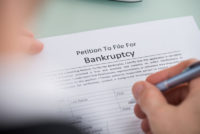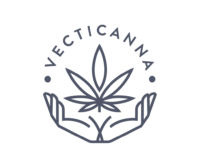A Cannabis Related Business (or CRB), whether a plant-touching operation or a provider of goods and services to plant-touching operations cannot seek protection from the bankruptcy court as it is a federal court and cannabis remains illegal at the federal level. As such, a CRB does not have the benefit of a court approved restructuring as provided by Chapter 11 of the Bankruptcy Code and does not receive the benefit of an orderly liquidation as provided by Chapter 7 of the Bankruptcy Code. However, alternatives to bankruptcy do exist and are available to a CRB.
Historical Considerations
Before the emergence of the Bankruptcy Code, businesses and their creditors had very few options available to undertake a court-supervised restructuring or liquidation other than seeking the appointment of a court neutral, typically called a receiver or special master. That “neutral” would take the business or its assets into “legal custody” or custodia legis and begin the process of dissolving the entities, selling the assets or otherwise sell the business as a going-concern. In the 1880s and 1890s with the Gilded Age coming to an abrupt halt, this process was successfully used to restructure and recapitalize the failing network of over-extended railways and rail lines, leading to the consolidation in the market that remains to this day.
Cannabis businesses can be legal and now an “essential” business but, still cannot receive the benefits of bankruptcy court.During the Great Depression, the federal judiciary established “reference” courts to deal specifically with bankrupt businesses and individuals laying the foundations for the modern bankruptcy code which is still in effect today. Many of those first precedents used to establish the bankruptcy code and rules were drawn directly from the receivership case law and receivership statutes ever-present in the historical record of common law cases and common law countries, reaching all the way back to the Courts of Chancery in Britain established soon after the Norman invasion of the British Isles in 1066.
In the United States, the equitable power of courts to initiate receiverships or other insolvency proceedings and crafting orders and decrees based on equity, as opposed as based on law or statute, is codified clearly in Article III of the United States Constitution. Today, receiverships and special masters are still utilized by state and federal courts to remedy unique circumstances where a simple bankruptcy cannot address the inequities presented in that case.
State Court Powers & Financing of Receivership Estates
State courts in particular, and California especially, have a wide body of case law supporting the equitable powers of the court, the quasi-judicial immunity of the receiver and the many equitable tools available to receivers. These powers include the negotiation and transfer of liens, with liens attaching to proceeds of sales of assets, the dissolution of a business and the establishment of a claims process akin to a bankruptcy or assignment for benefit of creditors.
 One of the many overlooked powers of a receiver is their ability to bring in outside financing or capital to fund the receivership estate to maintain a business as an ongoing concern or to provide short term leverage so that assets can be properly maintained, “dusted off” and sold.
One of the many overlooked powers of a receiver is their ability to bring in outside financing or capital to fund the receivership estate to maintain a business as an ongoing concern or to provide short term leverage so that assets can be properly maintained, “dusted off” and sold.
This process of bringing in new capital is typically done by the issuance of receivership certificates. These certificates are approved, ahead of time, by the court and courts can authorize that such certificates prime all other claims (including sometimes administrative claims) and that these certificates can be reduced to a security interest recorded against real or personal property.
The Mechanics of a Receivership
However, because cannabis is approved at the state level, state courts retain their equitable powers and the power to appoint a receiver over a business in need of restructuring or liquidation. There are many avenues to get to court for this benefit, but the primary path to a receivership is either through a creditor (or group of creditors) filing a lawsuit and seeking the appointment of a receiver. This scenario can be done through cooperation and stipulation but can be hostile as well. The receiver option is available and open to address the needs of insolvency for this rapidly expanding industry.Or, a legal entity, can seek dissolution protection from the state court and seek a neutral dissolution officer (a receiver) to manage that process which may include the infusion of new capital through receivership certificates, the sale of assets to third parties, the negotiation and payment of liens and claims through a claims process and the final restructure of dissolution of the legal entity in a manner similar to a bankruptcy or assignment for benefit of creditors. This voluntary petition is permitted by statute and case law and is a mechanism available to a business that is unable to file for bankruptcy protection but is in dire need of court supervision and authority to work through its insolvency problems. Further, by court order, a receiver is able to establish banking relations where a CRB may be unable.
Typically, it is recommended that any receivership filing whether by creditors, claimants or the business itself, be guided by a well-written, explicit order that outlines the parameters of the receivership, the funding requirements and limits, the rights of claimants and some sort of stay of claims against the receivership estate to give the receiver the time needed to work through all of the issues in that receivership estate. Further, outside funding can be pre-approved by the court and the priority of that funding can be established through the open process that the court provides, much akin to a debtor in possession (DIP) financing motion in bankruptcy court.
Because of the unique circumstance that CRBs find themselves in here in California, where they are a legal and now an “essential” business but still cannot receive the benefits of bankruptcy court, the receiver option is available and open to address the needs of insolvency for this rapidly expanding industry.

































